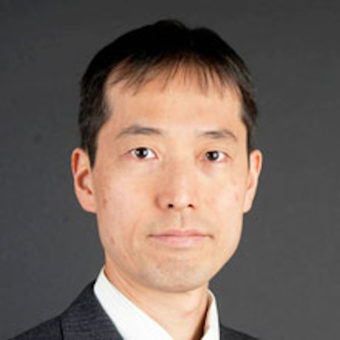With a background as an experienced neurosurgeon having fought glioblastoma for years in Japan, Hiroaki Wakimoto, MD has set an ultimate goal of developing a novel treatment strategy for this devastating disease. Despite efforts to improve outcomes, glioblastoma, a common brain cancer seen primarily in adults, remains one of the deadliest cancers, with median survival time of only 12-15 months. Recent research has shown that glioblastoma contains a subpopulation of cancer cells with a unique capability to initiate and drive cancer growth. These cells, therefore, need to be eliminated by therapies in order for the disease to be controlled.
Since joining the Brain Tumor Research Center at Massachusetts General Hospital in 2006, Dr. Wakimoto has successfully isolated these so-called glioblastoma stem cells (GSCs) from surgical specimens obtained at Mass General. When implanted into mice with immune deficiency, GSCs efficiently form intracranial tumors which closely resemble the pathology seen in original tumors in patients. This brain tumor model in mice gives greater value for testing novel therapeutics than conventional models. Dr. Wakimoto’s team also discovered that oncolytic herpes simplex viruses, which destroy cancer cells while sparing normal cells, are effective in killing GSCs, supporting the use of the agents in the clinics. To enhance anti-cancer activities of the viruses, the incorporation of therapeutic genes into viruses has been extensively tested using GSC models to determine whether this approach results in improved outcomes. In addition, GSCs from a series of patients have revealed one of two distinct “faces” of behavior in mouse brains: rich in blood vessels or highly infiltrative into the surrounding brain. As a result, research to elucidate the molecular characteristics that define the GSC features has started. If successful, the results may identify therapeutic targets for individual GSCs that can be explored to block exhibition of aggressive aspects of the cancer.
The ultimate goal of Dr. Wakimoto’s research is to develop effective treatments for malignant brain cancer, glioblastoma. He has long been focusing on the use of oncolytic herpes simplex viruses as a tumor-killing agent as well as a gene delivery vehicle. His research interest includes exploration of the biology of “cancer stem cells” present in glioblastoma, which are speculated as the source of tumor recurrence.
The generous support from the Rappaport Family Foundation has allowed Dr. Wakimoto to perform this innovative medical research that may lead to improvement in the lives of patients with brain cancer. Furthermore, the Rappaport award has been crucial in providing bridge funding that enables the research necessary for production of data to apply for federal funding. The findings made possible by the Rappaport award will be published in peer-reviewed scientific journals.
